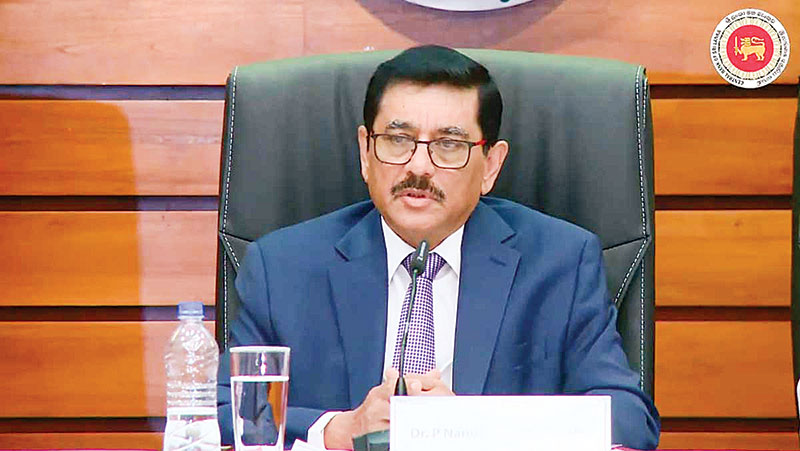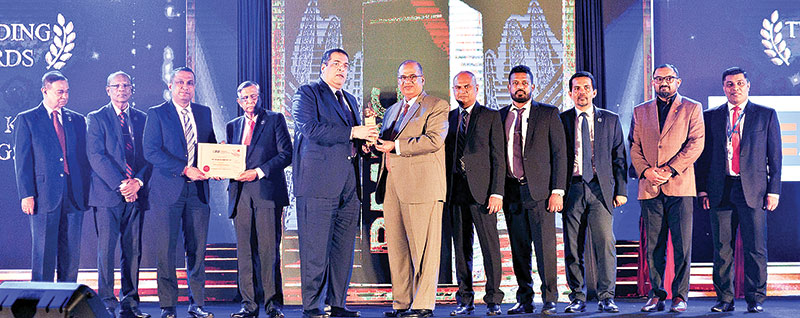Business
APIDM launches new digital credentialing initiative with Credly and Everitas

Asia Pacific Institute of Digital Marketing (APIDM), Sri Lanka’s leading digital marketing skills training provider has become the first in the region to offer digital credentials to its successful programme graduates through its landmark partnership with Credly, the global leader in digital credentials and Everitas, Australia’s leading digital credentials consultancy.
With this partnership, APIDM aims to bridge the skills and communications gaps between credential earners and employers. Digital badges offer a transparent and reliable way of showcasing qualifications to the benefit of both certificate holders and prospective employers.
This initiative is part of APIDM’s ambitious growth plans to become the most respected marketing skills provider for the APAC region by 2024. APIDM is already the first Sri Lankan digital skills provider to be accredited by the CPD certification service in the UK.
APIDM CEO Amitha Amarasinghe said the need for the scheme had become far more acute over the past 12 months due to the acceleration of digital transformation across many industries caused by the pandemic. He said: “We saw massive growth in the online education sector as well with more and more people electing to do professional upskilling programmes online. At a certain point, it almost became impossible for someone to recognise the real good quality professional qualifications from mediocre programmes developed with less rigour. APIDM wanted a way to distinguish the level of proficiency of our qualification holders in an internationally recognised way. We are proud to say that our partnership with Everitas and Credly has enabled us to achieve the said objective”
Shareena Lantra, APIDM manager operations and student success, said: “By providing a secure, digital representation of APIDM certifications our students, trainers and employees can more easily manage, share and make use of their credentials within their networks, across social media platforms and on their resumes. For employers, our new digital badges make it easy to identify individuals with the skills they need to build an effective marketing function.”
Jonathan Finkelstein, CEO of US based Credly said “Businesses are now keenly aware of the direct connection between the skills of their employees and the growth potential of the company.
Business
Human-elephant conflict mitigation efforts intensify

The Sri Lankan government has intensified its efforts to mitigate human-elephant conflicts and reduce elephant fatalities, allocating substantial funds in the 2025 budget for elephant conservation. The Department of Wildlife Conservation (DWC) has introduced a range of targeted measures, emphasizing public participation and localized interventions.
Recognizing the critical role of local communities, the government has launched awareness programs in high-risk Grama Niladhari divisions. By 2025, 23 villages have been identified for intervention, with 43 awareness programs planned. These initiatives aim to educate residents on coexistence strategies and reduce human casualties.
To physically deter elephants from entering villages, authorities are fast-tracking the construction of electric fences and the establishment of watch posts. The Civil Security Force will play a key role in these operations, enhancing protection through continuous monitoring and rapid response mechanisms.
In response to the alarming rise in illegal elephant killings, the government has reaffirmed its commitment to enforcing the Flora and Fauna Protection Ordinance. The Department of Wildlife Conservation has warned that perpetrators who engage in poaching or use firearms and explosive traps will face severe legal consequences, including criminal prosecution and heavy penalties.
Commenting on these developments, Ranjan Marasinghe, Director General of the Department of Wildlife Conservation, stressed the urgency of the situation:
“Sri Lanka’s wild elephant population is an invaluable national asset and balancing conservation with human safety is a top priority. Our latest initiatives integrate community-driven solutions with stronger legal enforcement to ensure the long-term survival of elephants while protecting human lives.”
Manjula Amararatne, Director of Protected Area Management, emphasized the department’s proactive stance:
“By enhancing physical deterrents such as electric fences and engaging local communities in conservation efforts, we are creating sustainable solutions to minimize conflicts.”
Meanwhile, U.L. Taufiq, Deputy Director (Elephant Conservation), stressed the role of law enforcement:
“Illegal elephant killings must stop. We are working closely with the judiciary to ensure those responsible face the full extent of the law.”
by Ifham Nizam
Business
Central Bank vows trickle-down relief to the people

Dr. Nandalal Weerasinghe, Governor of the Central Bank of Sri Lanka, assured on Wednesday that a systemic economic “trickle-down” effect would create new employment opportunities, generate greater economic dividends, and provide better government services to the people, among other benefits.
The Governor’s remarks came in response to a question posed by The Island Financial Review:
The Island: “Governor, Sri Lankan banks have reported robust profits and strong balance sheets, yet ordinary citizens remain trapped in a daily struggle for survival. At a recent business forum, a prominent banker argued that the ‘trickle-down effect’ would eventually alleviate public hardship. Do you agree with this theory, and if so, when will Sri Lankans actually feel relief in their lives?”
Governor: “The banking sector’s return on equity aligns with sustainable business practices. The banking industry, like tourism, manufacturing, or any other sector, must generate reasonable profits to survive and expand. This profitability is not unique to banks; it is a prerequisite for broader economic recovery. During the crisis, many sectors collapsed, but banks could not afford losses, as public trust hinges on their stability. Had banks failed, depositors would have panicked, triggering a bank run. We instructed banks to prioritise stability while accepting modest profits during the worst of the crisis. Their current profits remain disproportionate compared to other sectors. As the economy strengthens, recovery will generate jobs, dividends, and services, enabling the trickle-down effect to reach all citizens.”
The Governor made these remarks during the Q&A session following the second Monetary Policy Review for the period up to March 2025.
When asked whether the Central Bank was intervening to safeguard the rupee, the Governor replied, “We have been purchasing US dollars—we buy dollars from the market.”
On foreign exchange supply and demand, he stated, “It fluctuates daily for various reasons. In February and March 2024, we observed foreign inflows into government securities. Meanwhile, exporters and the remittance sector are performing well. Import demand remains stable at healthy levels. Thus, there is a ‘nice balance’ between foreign exchange inflows and outflow.”
According to the Review, rupee liquidity remains in surplus, and market interest rates continue to decline in line with the eased monetary policy. Credit flows to the private sector remain robust, supported by low interest rates. The Central Bank expects this trend to continue, bolstering domestic economic activity.
The Governor also noted that car import orders received thus far total approximately USD 200 million.
Authorities had initially projected USD 1 billion would be required to meet the car import demand after an import ban that lasted nearly 5 years and that would help accrue significant amount of taxes to the Treasury.
By Sanath Nanayakkare
Business
CEAT Kelani reaffirmed by CPM as one of Sri Lanka’s best-managed companies

CEAT Kelani Holdings has been adjudged the best-managed tyre manufacturing company in Sri Lanka and reaffirmed as one of the top 20 companies in the country for best management practices, by the Institute of Chartered Professional Managers (CPM) Sri Lanka.
The company received the Category Award in the ‘Tyre, Rubber, Metal & Wood Furniture’ sector at the 2025 edition of CPM’s ‘Best Management Practices Company Awards’ in addition to the Top 20 award presented at the awards gala. This is the second consecutive year that CEAT Kelani was recognised as one of the best managed companies in Sri Lanka.
The CPM awards honour the best practices in management in terms of leadership, policies and strategies, people management, partnerships & resources, processes and performance.
“Awards of this nature will encourage us to strive for even greater heights in management practices, adopting global best practices in aligning strategic direction with a people-centric approach,” CEAT Kelani Managing Director Ravi Dadlani said. “We have already shattered the stereotype for large-scale manufacturing operations and are considered a case study for a successful privatisation of a state-owned enterprise, with unprecedented achievements in productivity, product development, deployment of new technology, research and development, market leadership, sustainability and good corporate citizenship.”
He said CEAT Kelani has transformed from an “inside-out” company to an “outside-in” organisation, placing customer and market centricity at the core of everything it does. This shift is reinforced through regular market visits by employees at all levels, including management, shop floor staff, and all business functions.
-

 News6 days ago
News6 days agoSeniors welcome three percent increase in deposit rates
-

 Features6 days ago
Features6 days agoThe US, Israel, Palestine, and Mahmoud Khalil
-

 News6 days ago
News6 days agoScholarships for children of estate workers now open
-

 News7 days ago
News7 days agoDefence Ministry of Japan Delegation visits Pathfinder Foundation
-

 Foreign News4 days ago
Foreign News4 days agoBuddhism’s holiest site erupts in protests over Hindu ‘control’ of shrine
-

 News6 days ago
News6 days agoJapanese Defence Delegation visits Pathfinder
-

 Editorial7 days ago
Editorial7 days agoWhen promises boomerang
-

 Features3 days ago
Features3 days agoCelebrating 25 Years of Excellence: The Silver Jubilee of SLIIT – PART I











